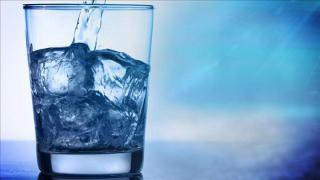Monochloramine Start-Up 5/5/20

Beginning May 13, 2020, the Hanover Water Department will begin using monochloramine in its water disinfection process. Monochloramine is an effective, long-lasting drinking water disinfectant that reduces the potential risk associated with total trihalomethanes (TTHM) and other disinfection byproducts in tap water.
With the conversion to monochloramine, Hanover Water Department customers will receive high-quality drinking water that meets or surpasses stringent US EPA requirements. Today, more than one in five Americans use drinking water treated with monochloramine. Monochloramine has been safely and successfully used by water utilities for more than 90 years. Boston, Dallas, San-Francisco and many other cities are all successfully using monochloramine to treat drinking water.
Specifically, the change to monochloramine will:
- Reduce the level of total trihalomethane (TTHM) and other regulated disinfection byproducts in your tap water.
- Provide the most economical treatment option available to the Hanover Water Department.
- Reduce chlorine taste and odor in your tap water.
Although safe for drinking, cooking and all typical uses, monochloramine (like chlorine) can be harmful to kidney dialysis patients. These patients can safely drink, cook and bathe in monochloramine-treated water, but monochloramine must be removed from the water used in kidney dialysis machines. Medical centers that perform dialysis or supervise home dialysis are responsible for ensuring water is purified before it enters the dialysis machine. These facilities have been notified of the upcoming change.
Monochloramine is also harmful to fish and other aquatic life when it directly enters the bloodstream from water that passes through their gills. Therefore, monochloramine must be removed from water used for fresh or saltwater aquariums and ponds, or any habitats that include Koi fish, lobster, shrimp, frogs, turtles, snails, clams and live coral. To protect fish and amphibians, use treatment products to remove monochloramine from tap water. These products are readily available at most pet supply stores and aquarium dealers. Leaving water to sit for a few days is not an effective method for removing monochloramine, because monochloramine is longer lasting than chlorine and will not dissipate from water. Earlier this year, we notified area veterinarians, and pet supply stores of the upcoming change.
Residents can get more information on monochloramine by contacting Neal Merritt, Deputy Superintendent of Public Works (Water Operations), at 781-826-3189 or by visiting our Chloramine Frequently Asked Questions page.

